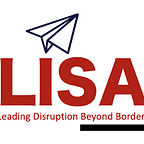LISA PitchFest 2022: payment solution from third winner QuickPenny enables reduced merchant fees and funds customer loyalty rewards.
Interview with the Winner — Andrew Hendel
LISA Cohort 3 counted 28 courageous from Stanford GSB LEAD, Stanford Seed and Stanford MBA — original thinkers who embarked on their Idea to MVP (Minimum Viable Product) Journey.
QuickPenny from the USA is LISA Cohort 3 third winner. Leveraging Automated Clearing House (ACH) payment processing QuickPenny messanger API communicates with banks and credit unions and is able to reduce payment processing fees allowing merchants to fund their rewards program through the generated savings.
We reached out to Andrew Hendel to learn more about his journey at LISA and future plans for QuickPenny.
Andrew: I enjoyed being put in touch with other entrepreneurs, and I got feedback from people who have heard lots of investor pitches: LISA helped me refine how I communicate to prospective investors.
LISA: Hi Andrew, introduce yourself to LISA community
Andrew: I worked for 15 years in financial services across hedge funds, private equity and investment banking before making the leap into entrepreneurship, and I have a M.S. and B.S. from Stanford.
LISA: Andrew, tell us more about QuickPenny.
Andrew: When I donated money to non-profit organizations to help people in need during the worst of the pandemic, I noticed that the non-profit organizations were asking for an additional 2–3% to cover the payment processing fees. That non-profit organizations were being burdened by such high fees seemed wrong to me. I started QuickPenny with a goal of reducing payment processing fees by leveraging alternatives like ACH. The importance of maintaining the competitiveness of the U.S. payment systems has not been lost on some of the people in the Federal Reserve that I have spoken to. There are a lot of government-backed developments underway, and I would like to contribute to solutions.
QuickPenny gets permission to debit people’s bank accounts when they link their account via a Nacha (National Automated Clearinghouse Association) preferred partner.
Neither QuickPenny nor the merchants we work with ever sees anyone’s bank username or password. When people pay merchants, we directly debit people’s bank accounts. As an inducement to pay with QuickPenny, we also facilitate a loyalty program for merchants.
When people pay with a debit card, there are very limited or no rewards and getting rewards for paying with a credit card requires borrowing money, which can be bad for some people. Paying via QuickPenny enables consumers to get rewards without borrowing money while supporting their preferred business by reducing payment processing fees.
LISA: What contribution did LISA make to your journey as an Entrepreneur?
LISA encourages people to start talking to prospective customers early in the life-cycle of the company, which I think is sound advice and something I could have accelerated even further. One of the things that I found interesting was how much credibility can be had by forming a C-corp or LLC, creating a logo, getting an official email address and putting together some sort of web presence. All those things can be done relatively quickly and inexpensively. Obviously having something to demo is even more powerful, but that comes later and at greater cost.
LISA: Can you tell about where is QuickPenny today and your plans for the future?
Andrew: I plan on launching a minimum viable product within 2–3 months and raising external financing at that time.
LISA: Do you have a closing message for the LISA community?
Andrew: There are a lot of start-up incubators and accelerators. Most of them take equity in the start-up for a small amount of money. LISA takes no equity so there is literally no downside to participating. If you have interest in starting something even if it is not perfectly defined, the program can help you develop the idea and business proposition. LISA is a very new accelerator. Because of its association with Stanford and because it is free, I think it will help drive even more value for participants in time.
LEAD Incubator and Start-ups Accelerator (LISA)
More info on LISA — GSB-LEAD-LISA
Contributed by:
Martina Nicodemo, Deepti Pawha
